Search Images
Browse Content (p. 1667)
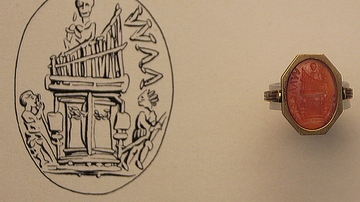
Image
Hydraulis Sealstone
A carnelian sealstone showing showing a hydraulis, with apprentices operating the bellows.
Roman, 1st-2nd century CE.
British Museum, 1859.3-1.112
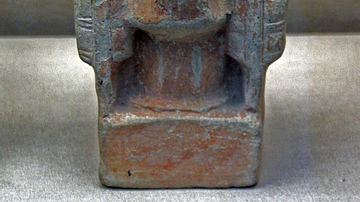
Image
Hydraulis Terracotta Lamp
A terracotta lamp in the shape of a hydraulis being played by an organist. On either side of the manuals are the air pumps which fed the water organ with a supply of air into order to produce the notes. Roman, Porconsularis (modern Tunisia...
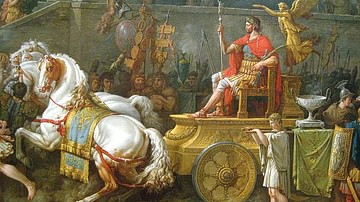
Image
The Triumph of Aemilius Paulus
Detail of the Triumph of Aemilius Paulus by Carle Vernet, 1789 CE, Metropolitan Museum of Art, New York.
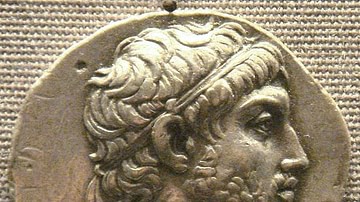
Image
Coin of Philip V of Macedon
Philip V of Macedon, 221–179 BCE, coin in British Museum.
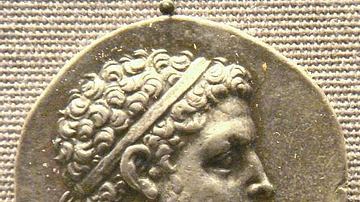
Image
Perseus, King of Macedon
Perseus of Macedon, 179-168 BCE, coin from the British Museum
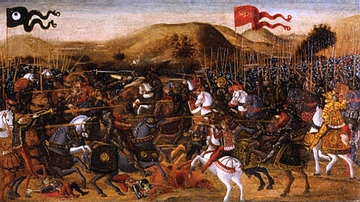
Image
The Battle of Pydna
The Battle of Pydna by Andrea del Verrocchio, 1475 CE, Musée Jacquemart-André, Paris
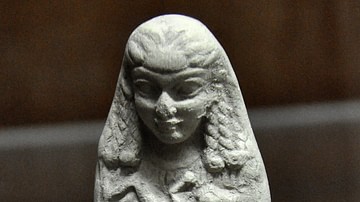
Image
Woman Holding a Child
A woman holding a small child on her chest. She wears a full and elaborate dress. From Mesopotamia, modern-day Iraq. Old-Babylonian period, 2000-1500 BCE.
The Sulaimaniya Museum, Iraq.

Image
Woman Breastfeeding a Child
Woman sitting on a low chair and wearing a long skirt, breastfeeding a baby. The bulk of her hair is in a bun on the back. She looks to her right side (facing her baby). The chest is bare and her baby suckles the right breast. From Mesopotamia...

Image
Populonia Tumulus Tomb
One of three tumulus tombs with stone plinths located in the Etruscan necropolis of Populonia, Italy, 7th-4th centuries B.C.E.

Image
Greenstone Mask, Teotihuacan
One of many surviving examples of Teotihuacan masks. This example was taken to Tenochtitlan by the Aztecs and buried within the Templo Mayor. They were originally used for statues and mummy bundles. Greenstone, shell, and onyx, 350-600 CE...